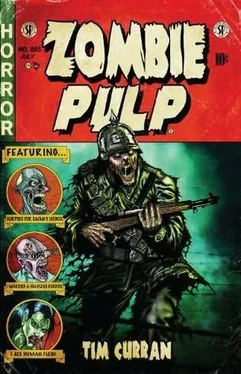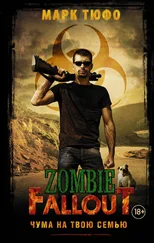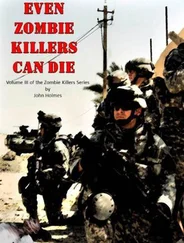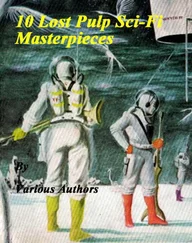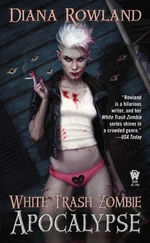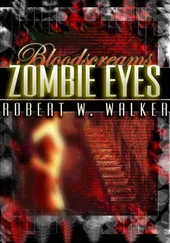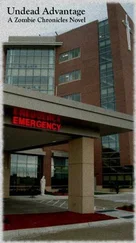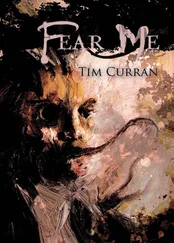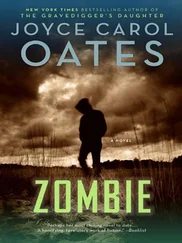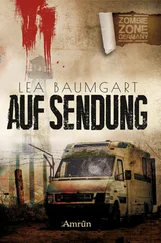Curran Array - Zombie Pulp
Здесь есть возможность читать онлайн «Curran Array - Zombie Pulp» весь текст электронной книги совершенно бесплатно (целиком полную версию без сокращений). В некоторых случаях можно слушать аудио, скачать через торрент в формате fb2 и присутствует краткое содержание. Жанр: Триллер, на английском языке. Описание произведения, (предисловие) а так же отзывы посетителей доступны на портале библиотеки ЛибКат.
- Название:Zombie Pulp
- Автор:
- Жанр:
- Год:неизвестен
- ISBN:нет данных
- Рейтинг книги:3 / 5. Голосов: 1
-
Избранное:Добавить в избранное
- Отзывы:
-
Ваша оценка:
- 60
- 1
- 2
- 3
- 4
- 5
Zombie Pulp: краткое содержание, описание и аннотация
Предлагаем к чтению аннотацию, описание, краткое содержание или предисловие (зависит от того, что написал сам автор книги «Zombie Pulp»). Если вы не нашли необходимую информацию о книге — напишите в комментариях, мы постараемся отыскать её.
Zombie Pulp — читать онлайн бесплатно полную книгу (весь текст) целиком
Ниже представлен текст книги, разбитый по страницам. Система сохранения места последней прочитанной страницы, позволяет с удобством читать онлайн бесплатно книгу «Zombie Pulp», без необходимости каждый раз заново искать на чём Вы остановились. Поставьте закладку, и сможете в любой момент перейти на страницу, на которой закончили чтение.
Интервал:
Закладка:
Now was the time to get out.
Cabot hobbled away into the mist until he found the sign marking the perimeter of the town. Only then did he dare rest. But not for long. He moved down the road, weaving through the auto graveyard out there. And then…lights.
Headlights.
They were coming for him.
Thank God.
He stepped out, waving his arms. A truck. It slowed. Cabot fell over, just worn out and used up. He lay there, half-conscious, just breathing, just alive. Not much more.
“Help me with him,” a voice said.
“Where…where you from?” he heard his voice ask.
“Moxton,” the man said. “Moxton.”
Hands on him. He was lifted gently into the truck. It was warm in there. He drifted off, feeling safe at last. It was good.
*
Later, Cabot opened his eyes.
There was darkness all around him. He heard people mumbling and sobbing, pushing against him, crawling over him. He tried to get up and he was knocked flat. He tried to talk to the people with him but he was not heard. With a slowly dawning horror, Cabot understood. Understood how that truck was from Moxton and not Hullville and in Moxton they did what they had to survive.
A great clicking. A groaning.
Moonlight pushing in as the rear doors of the truck opened.
People screaming.
Mist flooding into the bay like toxic steam. And in that mist, hulking shapes and morgue shadows with reaching arms and graying fingers. Graveyard faces specked with flies, faces gone to wormy white pulp, all grinning with long gnarled teeth and leering with glossy red eyes.
Cabot closed his eyes.
And waited his turn.
MORBID ANATOMY
“ Who shall conceive the horrors of my secret toil, as I dabbled among the unhallowed damps of the grave, or tortured the living animal to animate the lifeless clay?”
- Frankenstein, 18171
An Introduction and a Horror
Of my experiences in the Great War with Dr. Herbert West, I speak of only with the greatest hesitation, loathing, and horror. For it was to the flooded, corpse-filled trenches that we came in 1915.
Perhaps I held some naive patriotic and nationalistic motives of serving mankind and saving the lives of the war wounded-a state of mind induplicable once the truth of war is known-but with Herbert West it was never the case. Openly he disparaged the Hun, but secretly our commission in the 1 ^ st Canadian Light Infantry was merely a means to an end. You see, my colleague’s motives were hardly altruistic. Though a surgeon of exceptional, almost supernatural skill, a biomedical savant and scientific wunderkind, West’s lifelong obsession was not with the living but the dead: the reanimation of lifeless tissue and particularly the revivication of human remains. And in the war itself and the horrid by-products it produced like some great fuming factory of death, he saw the perfect environment for his arcane research…not to mention unlimited access to plentiful raw materials.
I came to the war as West’s colleague, yes, but I felt deep inside that I was answering the subtle call of a higher power, that I-and my surgical skill-were the instruments of good in a theater of evil. I arrived with high ideals and within a year, I departed Flanders, hollow-eyed, broken, my faith in mankind hanging by a tenuous thread. For many months, the memories struggled within me, stillborn shadows of pestilence-living, crawling, and filling my throat until, at times, I could not swallow nor draw a solitary gasping breath.
If that seems a trifle melodramatic, then let the uninitiated consider this:
Flanders, 1915.
A cramped, claustrophobic maze of waterlogged trenches cutting into the blasted earth like deep-hewn surgical scars. Throughout the long misty days and into the dark dead of night, machine-guns clattering and high-velocity shells bursting, the thumping of trench mortars and the choking cries of gassed soldiers tangled in the barbwire ramparts. The stink of burned powder, moist decomposition, and excrement. Rotting corpses sinking into seas of slopping brown mud. Rats swarming atop the sandbags. Flares going up and shells coming down. And death. Dear God, Death running wild, sowing and reaping, gathering His grim harvest in abundance as the bodies piled up and the rain fell.
It was just the sort of place where a man of Herbert West’s peculiar talents would thrive.
Unlike I who held faith in the existence of the human soul and its ascension, upon death, unto the throne of God, West held no such misconceptions (as he put it). He was a scientific materialist, a confirmed Darwinist, and to him the soul was a religious fantasy and the Church existed only as a political entity to oppress and control the masses for its own remunerative ends. Life was mechanistic by nature, he claimed, organic machinery that could be manipulated at will. And if I had doubted such a thing, he proved it repeatedly with a reagent he had developed that galvanized life into the dead…often with the most unspeakable results.
Even now, these many years later, I can see West-thin, pale, his blue eyes burning with a supernal intensity behind his spectacles-as he sorted through the piles of corpses, whispering off-color remarks to me and giggling with his low cold laughter as he scavenged about like a butcher selecting only the finest cuts…a clot of gut, a stray undamaged organ, a particularly well-proportioned limb or the rare intact cadaver. I can see corpses floating in flooded bomb craters and the black clouds of seeking corpseflies. And I can see the terrified eyes of young men about to go over the top in search of their graves.
I can see Flanders.
I can see West’s workshop-a converted barn-part surgical theater and part laboratory of diabolical creation. I can see things in jars and vessels of bubbling serum…remains that should have been dead but were horribly animate with a semblance of ghoulish life. I can see the headless body of Major Sir Eric Moreland Clapham-Lee that West had reanimated. And I can hear the Major’s head crying out from its vat of steaming reptile tissue right before German shell-fire brought the structure down in a blazing heap.
But worse, far worse, are the dreams that come for me in the blackest marches of night. For I see Michele. Articulated, wraithlike…she comes to me like a jilted lover in the night. She wears a white bridal gown like a flowing shroud. It is spattered with mud and gory drainage, threaded with mold and infested with insects. I can clearly hear them buzzing and clicking. I can smell her odor which is flyblown and fusty, equal parts mildew and filth and grave earth. She comes to me with outstretched arms and I seek her as fast. Her bridal train is discolored, ragged, worried by plump graveyard rats whose stink is the stench of the darkest, moldering trenches of Flanders. When her arms embrace me I shiver for I can feel the grave-cold of her flesh, the coffin-worms writhing in her shroud. I gag on her stink.
She does not kiss me.
For she has no head.
2
The Walking Dead
Creel had been in Flanders for four months, embedded with the 12 ^ th Middlesex, when he got invited on a little raiding party that was being thrown together. No volunteers were asked for. The sergeants went down the forward trench, picking men at random like apples from a barrel and none of them were too happy with the idea.
Somehow, he had thought there would be a little more military precision involved in such a thing, but it was no different than anything else in that war. Eenie, meanie, miney, mo. Looking at the dour faces of the selected, Creel asked Sergeant Burke what would happen if one refused to go.
Burke got that pained expression on his face that Creel so often seemed to inspire. He was Creel’s aid. His job was to stay by Creel’s side, keep him in one piece if possible and keep him out of trouble…if such a thing were feasible.
Читать дальшеИнтервал:
Закладка:
Похожие книги на «Zombie Pulp»
Представляем Вашему вниманию похожие книги на «Zombie Pulp» списком для выбора. Мы отобрали схожую по названию и смыслу литературу в надежде предоставить читателям больше вариантов отыскать новые, интересные, ещё непрочитанные произведения.
Обсуждение, отзывы о книге «Zombie Pulp» и просто собственные мнения читателей. Оставьте ваши комментарии, напишите, что Вы думаете о произведении, его смысле или главных героях. Укажите что конкретно понравилось, а что нет, и почему Вы так считаете.
